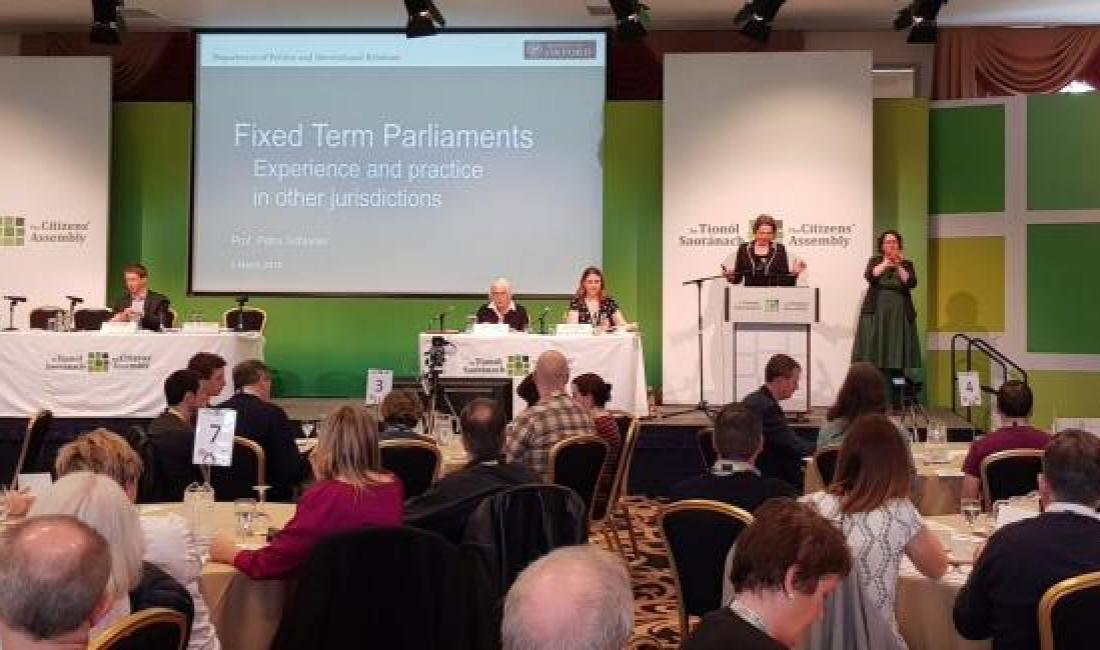Erwin Mayer, Board Member Democracy International and Spokesperson for Mehr Demokratie Austria makes the case for nationwide citizens' assemblies.
It’s clear that more democracy is better than less democracy. But, recent developments in global democracy could lead to a diverse interpretation of more or less democracy. Concentration of power, reduced or strongly hindered checks and balances in the USA, Russia, Poland, Hungary, Turkey and others are all a result of “democratic” elections. The wish for a domineering leader without a term limit who is able to “fulfil the wish of the people” and to overcome complicated and invisible political processes seems to increase as opinion polls in Austria and other countries show.
At the same time, the number of referenda and participatory processes from the local to the national and the international levels is strongly increasing. What seems to be a contradiction is the outcome of an even harder conflict between the few that have the ruling power and the many who have almost no political power.
People are more and more sceptical to the representability of established political systems, particularly modern, western parliamentarian democratic systems. The good news is that the wish to have more influence on the rules that directly affect people is increasing. The wish for political (but not party politics) engagement is growing, and people still want elected bodies like parliaments - however, people want elected bodies that are working more for the people and less for special interest groups and for party and personal carrier interests. The representative-democratic system should be more representative than it is now.
These (too) powerful leaders are recognizing this wish and offering consulting referenda from above – malleable in the hands of presidents, chancellors and parliaments. The issues on which to be decided, the wording of the questions, and the timing is completely in the hands of the ruling few, and the many are simply expected to justify and legitimate these decisions. Or, another approach to handling the growing demand for more democracy are more consultative, non-binding participatory processes, which would offer a valve for the growing democratic pressure. These processes are often limited to merely the local level so that important national decisions on contested topics like rescuing banks with taxpayers’ money, budgets, and military and security decisions are not affected. The design and rules-of-the-game for this form of “direct democracy” and participatory processes like citizens’ assemblies are made by those already in power – the ruling few. Thus most of the constitutions and rules for the decision-making process have been established by party members, governments and their experts.
But, there is hope that the growing demand for real or truth direct democracy by the many, the sovereign, the people, will have its breakthrough. More and more politicians, especially of newly established parties, are willing to help this movement, and government representatives might fear to lose elections if they reject real democracy. It is our responsibility as direct democracy advocates and experts to guide and support this movement with competence and precise proposals.
The combination of deliberative citizens’ assemblies and binding referenda is crucial for this movement. Citizens’ assemblies offer the possibility for randomly-selected everyday citizens to receive relevant and neutral information and to form their opinion on a topic. Binding referenda, initiated by the people, are the other important side of the democracy coin. In both instruments, the people must have the possibility to initiate the process, to choose the topics, to define the wording of the recommendations and the referendum question and to determine the timing of the political process along these decisions.
The “Bürgergutachten” in Germany as proposed by Mehr Demokratie on the reform and the establishment of direct democracy on the German national level, as well as a new possible citizens’ assemblies in Austria, could take up the experiences of the citizens’ assemblies in British Columbia, Canada in 2004 and the two citizens’ assemblies in Ireland in 2012 and 2018. The citizens’ assemblies should lead to national referenda on the constitution or on the crucial rules on decision-making and on the creation of laws, as it happened in Ireland and British Columbia where proposals were written and decided on by the people. The lack of implementation of those proposals in these two cases is again a result of rules made by the governments: in Ireland, parliaments have to decide on consulting citizens’ assemblies, and in British Columbia, valid referenda need a 60% approval quorum. Therefore, the first citizens’ assembly should concentrate on the question: who really takes the final decision on certain proposals made by the people?




